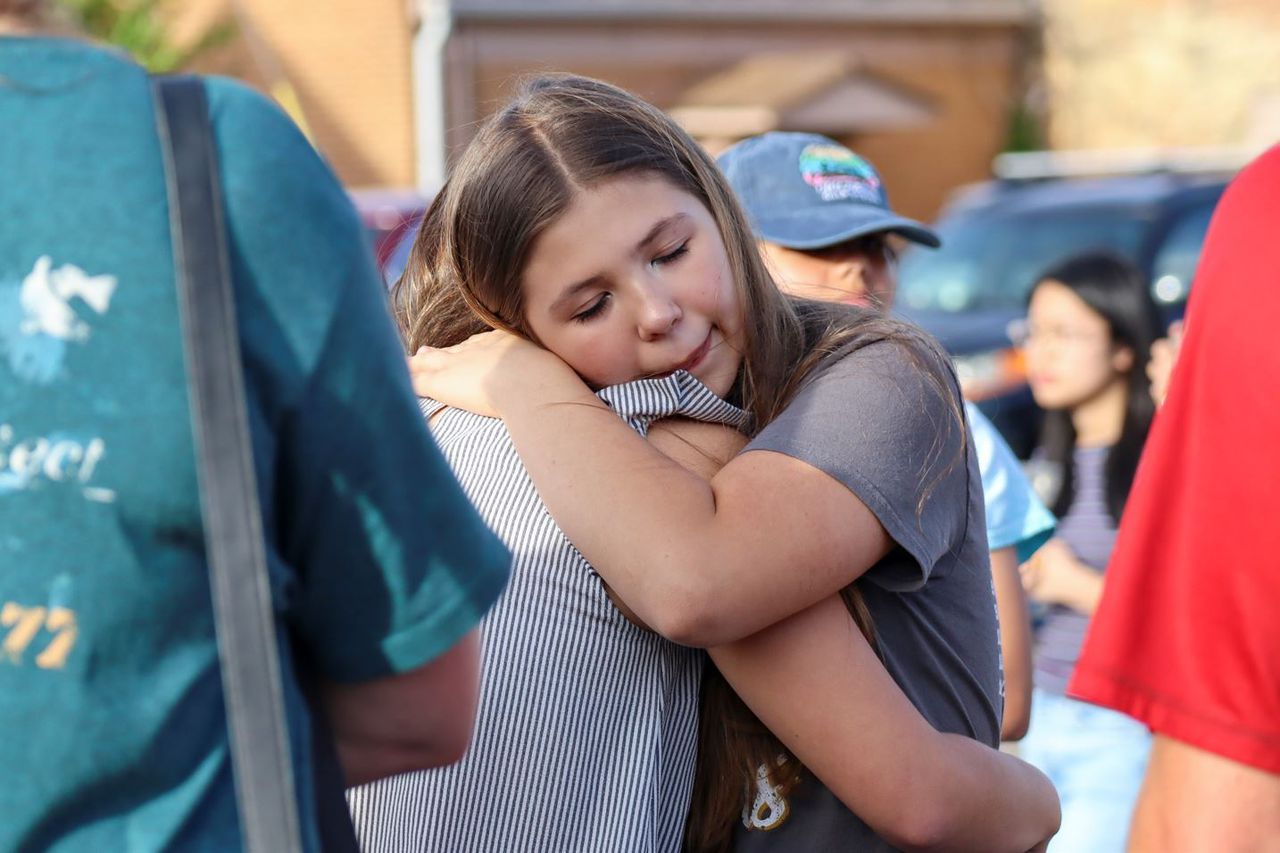Experts share how to talk to children after shootings, traumatic events
Experts say there’s no easy solution to help children cope with traumatic events.
But there are several things parents and loved ones can do for children after something scary happens. Taking some steps together can help minimize longterm stress, whether a family is dealing with a car accident, natural disaster or gun violence.
Four people, including two high school students, died on April 15 in a mass shooting in Dadeville, Alabama. While mass shootings are relatively rare, they are increasing. And firearms are the leading cause of death for children and teens in Alabama and in the U.S.
AL.com spoke with several experts about ways to help children and young adults.
Why does this matter? What are warning signs of distress?
Children and teenagers may have increased feelings of anxiety, fear and safety concerns after traumatic events, and may also display changes in appetite, sleep, and other behaviors. Parents and caregivers can monitor those reactions, validate a child’s feelings and offer positive outlets for stress and anxiety.
Experts say it’s important to prioritize physical health and wellbeing.
Drink water, get enough sleep, eat regularly, and try to get outside as much as you can. Take time to rest, and avoid making any major life decisions during this time.
Talking about what happened with a trusted adult, friend or community member can also make the healing process easier.
According to The National Child Traumatic Stress Network, there are several things that parents can do after a tragic incident to minimize additional harm, including sticking to normal routines, limiting media exposure and creating a safe space to talk about the event.
If anxiety persists, or if a child or a teenager has continued difficulty a few months after an attack, experts recommend seeking professional help.
As appropriate, experts also recommend giving children a way to participate in community change or to take action. Depending on a child’s age and the event, that might look like writing a letter to a hurt friend, attending a vigil or helping them organize a protest.
“Many of us are feeling helpless, scared, and worn down by the sheer number of tragedies and mass shootings we have experienced,” said Dr. Jennifer Langhinrichsen-Rohling, a professor of psychology at University of North Carolina at Charlotte. “We need to marshall these feelings to have those difficult conversations with our children, to help them cope with their/our fear, and we need to change policy – work with our legislature. Suicide rates go down when we restrict access to lethal means; the same is true for homocide.”
How do I talk to my child about violence?
These resources from NCTSN and the National Association of School Psychologists walk parents, caregivers and teachers through conversations with children and teens about violence.
Before having the conversation, it’s important for adults to acknowledge their own feelings and try to keep a warm and open presence. Always start by reassuring children that they’re safe, and let your child’s questions guide the conversation.
It’s common for some children and teens to display significant changes in behavior after a tragic event, ranging from hyperactivity to feelings of depression or isolation.
Where can I find resources, help for my child after a traumatic event?
For many young people, school is a primary avenue to access mental health resources or further help. Make sure your school is aware of any ongoing needs and ask about counseling and mental health resources.
The National Center for Post Traumatic Stress Disorder has a list of suggested actions parents can take in response to various behavior changes, depending on your child’s age group.
The Substance Abuse and Mental Health Services Administration also has a free app that offers additional resources for first responders, teachers, parents and caregivers after a traumatic event.
And the Child Mind Institute also has resource guides with age-appropriate tips and advice for children and young adults.
If your child needs long-term mental health support, use this Ed Lab guide to assess some options in Alabama.
Crisis Hotlines
For immediate help, below is a list of crisis hotlines available 24/7:
- Disaster Distress Helpline: Call or text 1-800-985-5990 (for Spanish, press “2″) to be connected to a trained counselor any time.
- 988 Suicide and Crisis Lifeline
- Gun Violence Crisis Text Line: Text HOME to 741741 to connect with a volunteer crisis counselor at any time.
- The Psychiatric Intake Response Center (PIRC) at the emergency department at Children’s of Alabama in Birmingham is available to any adults with a mental health question or concern regarding a child or adolescent. Caregivers can call 205-638-PIRC (7472) seven days a week from 8 a.m. to 11 p.m. to speak confidentially with a licensed mental health clinician trained to assess a child or teen’s mental, emotional and behavioral needs and recommend the best treatment options.
